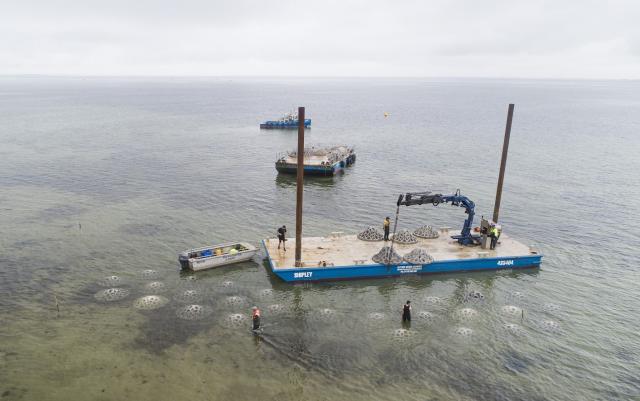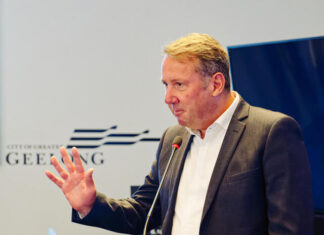After years of delays an artificial reef is finally being installed at The Dell in Clifton Springs.
The project, first mooted in 2017, was meant to be a tourist attraction for divers and snorkellers, but was scaled back to a $250,000 project that will contain 46 modular reef units.
The Dell Eco Reef is hoped to create a marine habitat and reduce wave energy and erosion.
The units have been installed at The Dell, just offshore from Clifton Springs.
A world-leading artificial reef designer and leading climate change researchers are key partners in the City of Greater Geelong’s stalled project.
Mayor Peter Murrihy said the Dell Eco Reef was in line with the Council’s Climate Change Response Plan, and goal of becoming a zero-emissions climate-ready city.
“The artificial reef helps to respond to future climate change impacts, such as increased coastal erosion, and is designed with eco-friendly cement to minimise lifecycle emissions,” he said.
“The project fuses elements of sculpture, technology and ecology to deliver a visually striking addition to the Bellarine.
“The innovative design will protect and enhance The Dell’s sensitive coastline and provide new habitat for vulnerable marine life.
“It also offers a unique educational and sculptural feature that will draw visitors to the beach.”
Exposed at low tide and submerged at high tide, the sculptural reef can be accessed by either wading or snorkelling.
Melbourne-based industrial designer and manufacturer Alex Goad, from Reef Design Lab, designed and fabricated the reef modules.
Mr Goad said the undulating units created an exciting and unique wave break system for the region.
“A deep understanding of how these intertidal ecosystems work has allowed us to maximise surface area for colonising oysters and mussels, provide much-needed wave break protection, and also deliver a sculptural system that will enhance the beauty of the coast at both high and low tide,” he said.
The University of Melbourne and the National Centre for Coasts and Climate will assess the effectiveness of seeding some modules with juvenile native flat oysters.
They will also closely monitor the natural colonisation on the modules by native species such as fish, mussels, seaweed and invertebrates.









